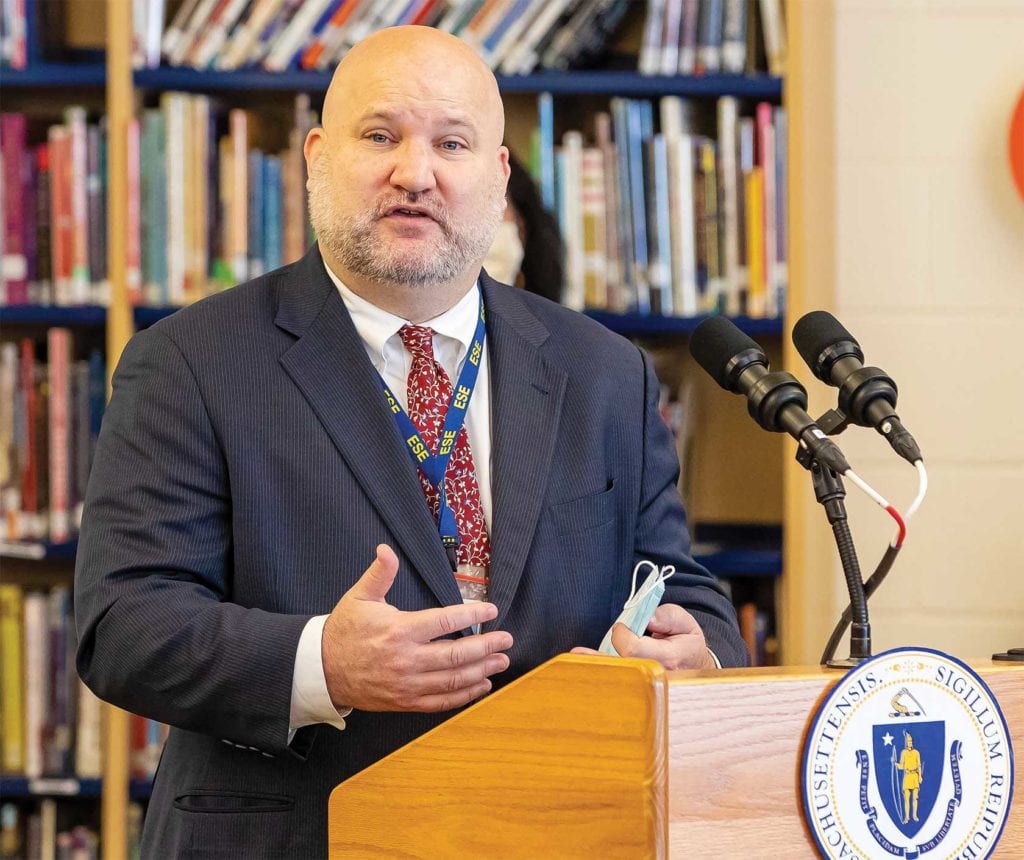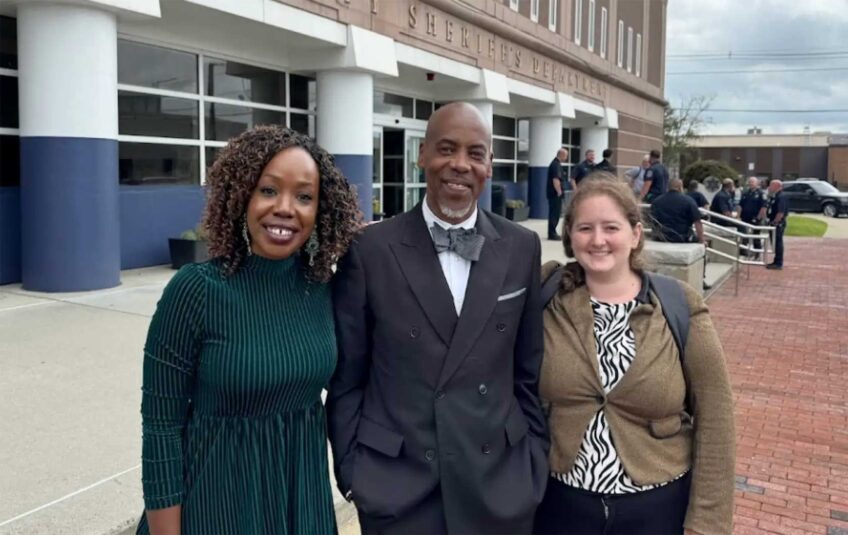Debate growing on what students need
As students return to classrooms, there’s little agreement on learning loss and testing

In the early days of the pandemic last spring, as students in Boston switched to remote learning, many struggled with challenges ranging from social isolation to the loss of family members to COVID-19.
All the while, most students logged on to Chromebook laptops or personal computers as Boston and other districts adopted a remote-learning strategy to keep the school year going.
Now, as many students return to classrooms, education officials, students, teachers and parents are wrestling with another new challenge — the concept of learning loss. The phrase learning loss, which publishers of standardized tests coined during the early months of the pandemic when most districts across the country were closed, has caught on.
In the $1.9 trillion federal stimulus bill signed into law by President Joe Biden last month, $6.5 billion has been set aside for states to alleviate learning loss. In Massachusetts, members of the state board of the Department of Elementary and Secondary Education cited learning loss in their decision to require school districts to open schools five days a week beginning in April.
Yet across the country, education activists are sounding the alarm on what many see as a singular focus on learning loss that comes at the expense of helping students with other needs.
“We know people using the phrase ‘learning loss’ mean the acquisition of content in two subject areas as measured on a standardized test,” said Jack Schneider, a UMass Lowell assistant professor of education. “That framing does not honor all of the work kids did.”
On the corporate side, firms that create, administer and grade standardized tests to measure students’ progress stand to make hefty profits if the $6.5 billion in stimulus funds go into preparing students to meet previously set benchmarks in reading and math that can be measured on such tests.
DESE officials described learning loss as a key factor in their support for requiring districts to return students to classrooms.
“Returning all students to the classroom full-time this school year is a crucial step to stem student learning loss,” DESE officials wrote in a March 11 document. “At the same time, we must also focus on recovery and acceleration, especially for students most in need of intensive support.”
Boston Teachers Union President Jessica Tang says state and federal policymakers should be focused primarily on the needs of students, not just on what they’re expected to know.
“If we only focus on academic learning loss, we’re missing out on all the other components of a child that enable them to learn,” she said. “You have to address the whole child’s social-emotional wellness in order for them to learn.”
Neema Avashia, a teacher at the McCormack middle school, says students have been asking for increased mental health and social supports, as many have suffered losses in their families due to COVID infections.
Avashia has teamed up with researchers from MIT and Harvard University to create a series of questions educators can ask students to gauge what they need in school now, over the summer and in the coming year. Teachers and school staff are conducting interviews with students and uploading information onto MIT’s Imagining September website. The interview responses will be de-identified, made public and shared with researchers, policymakers, journalists and the general public.
Avashia said her own students have spoken out against summer school and other measures policymakers have been discussing as ways to combat the learning loss they think students are experiencing.
“I just think overwhelmingly there’s a big disconnect between what adults outside of school think students need and what adults inside of school buildings are hearing from their students,” she said.
School districts are required to spend 20% of the federal stimulus funds they’re due to receive on ameliorating learning loss. While state education officials plan to use the Massachusetts Comprehensive Assessment System (MCAS) test to gauge where students need to catch up, state Education Commissioner Jeffrey Riley’s decision to move forward with MCAS testing in May has drawn fire from teachers unions, a group of 29 state Senators, school principals and superintendents, including Boston Superintendent Brenda Cassellius.
“Literally, we’re talking about how to give the MCAS,” Avashia said. “I haven’t heard the word healing come out of Jeffrey Riley’s mouth.”
Tang said the test, the results of which typically don’t get back to schools until the following fall, would take a week out of learning time and would not be of much help in giving teachers actionable information. She said the assessments teachers give their students are better at identifying their needs than the standardized tests used by the state.
“Educators have much more rigorous assessments that they will be giving that don’t pull so many resources from teaching and learning,” she said.
At a March budget hearing, Riley told legislators federal guidelines require states to administer assessment tests.
“The federal government is still requiring we test our students,” he said, quoted in Commonwealth Magazine. “It provides a little wiggle room but won’t allow us to not test kids.”
Although Riley and Gov. Charlie Baker cited students’ mental health needs in making the case for in-person learning, Avashia counts herself among those who suspect the push to get students back in school for the last few weeks of classes is largely driven by the mandate to test students.
“If it really was about mental health, wouldn’t they be talking about more counselors in the schools?” she said. “There’s been nothing about that.”







